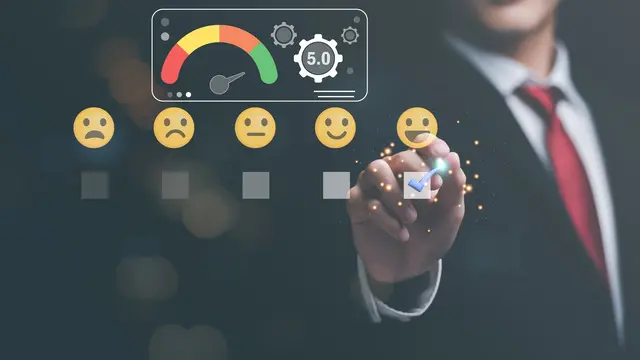Compliance Monitoring Automation: A Lifeline for the Retail Sector
The ever-evolving regulatory landscape and intricate compliance requirements pose a significant challenge for the retail industry. Manual compliance monitoring processes are often time-consuming, error-prone, and fail to keep pace with the dynamic nature of regulations.
Introducing Intelligent Compliance Monitoring Automation
Compliance Monitoring Automation leverages the power of Python, AI, and cloud-based solutions to streamline and enhance compliance monitoring processes. This intelligent approach empowers retailers to:
- Automate data collection and analysis from multiple sources
- Utilize AI algorithms to identify and prioritize compliance risks
- Generate comprehensive compliance reports for regulatory submissions
- Provide real-time alerts and notifications for potential compliance issues

Python, AI, and Cloud: The Trifecta for Compliance Monitoring Automation
Unattended Bots: Automating Compliance Monitoring Tasks
Python’s robust capabilities make it an ideal choice for developing unattended bots that can automate repetitive and time-consuming compliance monitoring tasks. These bots can continuously monitor data, identify anomalies, and trigger alerts based on predefined rules.
Attended Bots: Enhancing Human Efficiency
Attended bots extend the capabilities of unattended bots by providing real-time assistance to human compliance officers. Built with Python, these bots offer a high level of customization, enabling them to adapt to specific compliance requirements and user preferences.
Cloud Platforms: Orchestrating Compliance Automation
Cloud platforms provide a comprehensive suite of tools and services that far surpass the capabilities of traditional RPA/workflow tools. They offer:
- Scalability: Handle large volumes of data and complex compliance workflows
- Security: Ensure data protection and compliance with industry standards
- Integration: Connect with various enterprise systems and data sources
AI: Enhancing Accuracy and Handling Edge Cases
AI techniques such as image recognition, natural language processing (NLP), and generative AI can significantly improve the accuracy and efficiency of compliance monitoring automations. These techniques can:
- Analyze unstructured data (e.g., invoices, contracts) for compliance insights
- Classify and prioritize compliance risks based on their severity
- Generate tailored compliance reports and recommendations

Building the Compliance Monitoring Automation with Python and Cloud
Sub-Processes in Compliance Monitoring Automation
The Compliance Monitoring Automation process involves several sub-processes that can be automated using Python and cloud technologies:
- Data Collection: Extract data from various sources (e.g., ERP systems, POS systems, social media) using Python scripts and cloud connectors.
- Data Analysis: Analyze collected data to identify compliance risks and anomalies using Python libraries and cloud-based analytics tools.
- Risk Assessment: Prioritize identified risks based on their severity and potential impact using AI algorithms and cloud-based risk management platforms.
- Control Implementation: Automate the implementation of controls to mitigate identified risks using Python scripts and cloud-based workflow management tools.
- Reporting and Alerting: Generate compliance reports and trigger alerts for potential compliance issues using Python scripts and cloud-based reporting tools.
Data Security and Compliance in Retail
Data security and compliance are paramount in the retail industry. Python and cloud platforms provide robust security features to ensure the confidentiality, integrity, and availability of sensitive data.
Advantages of Python over No-Code RPA/Workflow Tools
Compared to no-code RPA/workflow tools, Python offers:
- Greater Flexibility: Python is a general-purpose programming language that allows for extensive customization and integration with various systems.
- Improved Scalability: Python scripts can handle large volumes of data and complex workflows more efficiently than no-code tools.
- Lower Maintenance Costs: Python scripts are more maintainable and extensible than no-code automations, reducing long-term costs.
Algorythum’s Approach to Compliance Monitoring Automation
Algorythum takes a different approach to Compliance Monitoring Automation by leveraging Python and cloud technologies. This approach addresses the limitations of off-the-shelf automation platforms and provides clients with:
- Tailored Solutions: Python-based automations can be customized to meet specific compliance requirements and business processes.
- Enhanced Performance: Cloud platforms provide scalable and high-performance infrastructure for demanding compliance monitoring tasks.
- Reduced Costs: Python scripts are more cost-effective to develop and maintain than pre-built automation tools.

The Future of Compliance Monitoring Automation
The future of Compliance Monitoring Automation holds exciting possibilities for the retail industry. Emerging technologies such as:
- Blockchain: Can provide immutable and transparent records of compliance activities
- Advanced AI: Can automate complex compliance tasks and enhance risk detection
- Edge Computing: Can enable real-time compliance monitoring at the point of sale
By embracing these future technologies, businesses can further enhance the efficiency, accuracy, and scalability of their compliance monitoring processes.
Subscribe and Contact Us
Stay up-to-date with the latest trends in Compliance Monitoring Automation by subscribing to our blog.
Contact our team today for a free feasibility and cost-estimate for your custom Compliance Monitoring Automation requirements.

Algorythum – Your Partner in Automations and Beyond
At Algorythum, we specialize in crafting custom RPA solutions with Python, specifically tailored to your industry. We break free from the limitations of off-the-shelf tools, offering:
- A team of Automation & DevSecOps Experts: Deeply experienced in building scalable and efficient automation solutions for various businesses in all industries.
- Reduced Automation Maintenance Costs: Our code is clear, maintainable, and minimizes future upkeep expenses (up to 90% reduction compared to platforms).
- Future-Proof Solutions: You own the code, ensuring flexibility and adaptability as your processes and regulations evolve.









